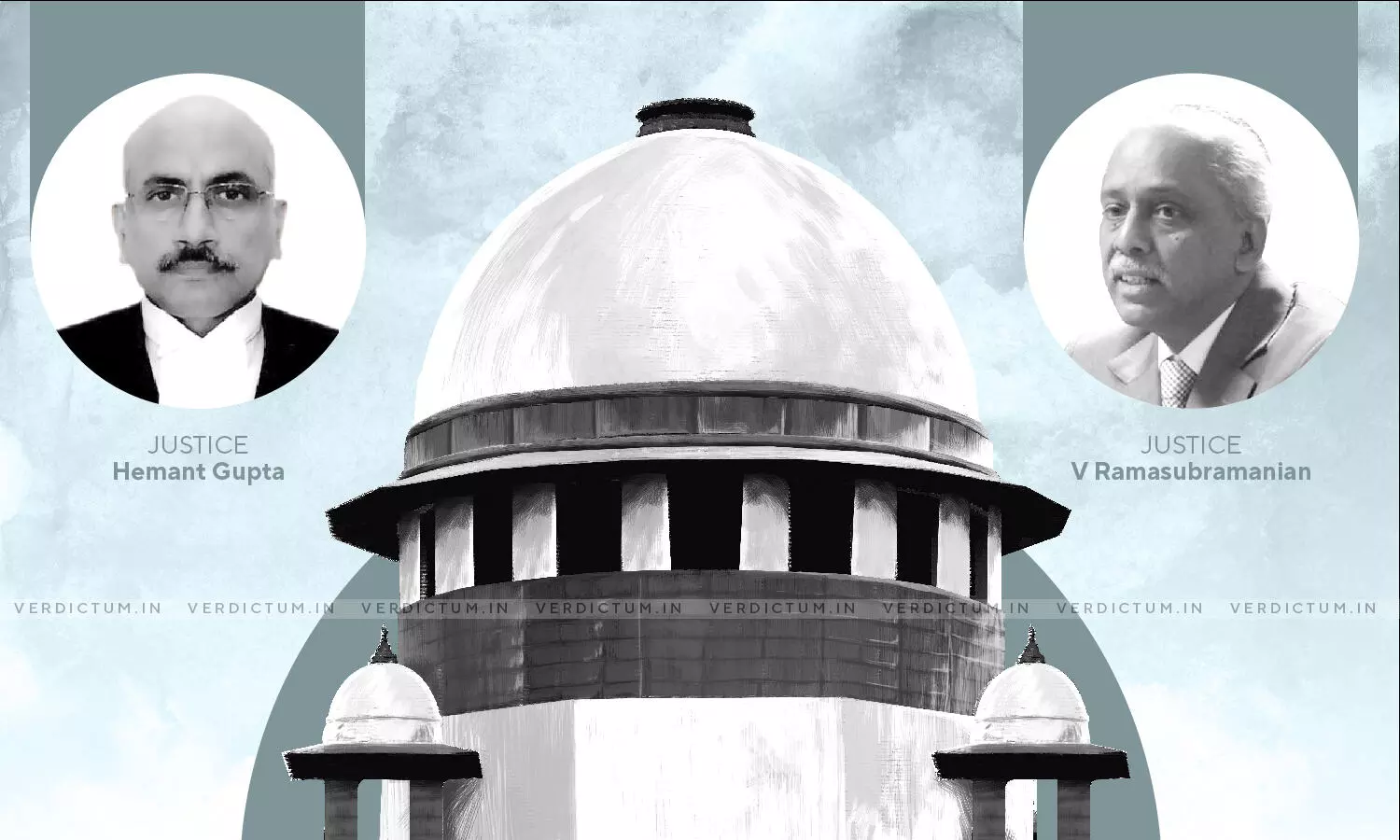
Noting Recorded In File Is Noting Simpliciter And Such Noting Cannot Be Treated As Decision Of Government: SC Reiterates
 |
|A two-judge Bench of Justice Hemant Gupta and Justice V. Ramasubramanian, relying on the dicta in State of Uttaranchal v. Sunil Kumar Vaish, (2011) 8 SCC 670 has held that "a noting recorded in the file is merely a noting simpliciter and nothing more. It merely represents an expression of opinion by a particular individual. By no stretch of imagination, such noting can be treated as a decision of the Government."
Hence, the Court held that the letter seeking approval of the State Government by the Deputy Commissioner is not the approval granted by him, which could be enforced by the plaintiff in the court of law.
The appeal was filed by the Municipal Committee, Barwala against the dismissal of its second appeal arising out of a suit for mandatory injunction praying execution of a sale deed in respect of land measuring 55 kanals 5 marias sought by the plaintiff.
The plaintiff had claimed title and possession on the basis of an open auction. The total sale consideration was deposited with the Committee. Plaintiff claimed to be the bonafide purchaser and in possession.
The sale deed having not been executed, the plaintiff served a notice which was the cause of action to file the civil suit. It was argued on behalf of the appellant that in absence of confirmation of sale by the State, the plaintiff would not get any right over the property.
Reliance was placed on Section 10(2)(e) of the Haryana Municipal Common Lands (Regulation) Act, 1974, however, the same had been declared unconstitutional. Reliance was also placed on State Properties Rules, 1976.
The Trial Court decreed the suit. The first appeal and the second appeal were dismissed. Hence, the appeal was preferred before the Supreme Court.
The Court held that the decree passed by the Courts below was a perverse reading of provisions of law. The Court noted that no concluded contract ever came into force.
The Court also noted that the State or authority under Article 12 is not bound to accept the highest tender of the bid.
The Court made the following crucial observations:
"This Court has also considered that the inter-departmental communication and/or the notings on the file are not the decisions of the State. It has been held by the Constitution Bench in a judgment reported as Bachhittar Singh v. State of Punjab that merely writing something on the file does not amount to an order. It was held as under:
"10. The business of State is a complicated one and has necessarily to be conducted through the agency of a large number of officials and authorities. The Constitution, therefore, requires and so did the Rules of Business framed by the Rajpramukh of PEPSU provide, that the action must be taken by the authority concerned in the name of the Rajpramukh. It is not till this formality is observed that the action can be regarded as that of the State or here, by the Rajpramukh. ................. Indeed, it is possible that after expressing one opinion about a particular matter at a particular stage a Minister or the Council of Ministers may express quite a different opinion, one which may be completely opposed to the earlier opinion. Which of them can be regarded as the "order" of the State Government? Therefore, to make the opinion amount to a decision of the Government it must be communicated to the person concerned. In this connection we may quote the following from the judgment of this Court in the State of Punjab v. Sodhi Sukhdev Singh (AIR 1961 SC 493 at page 512] :
11. We are, therefore, of the opinion that the remarks or the order of the Revenue Minister, PEPSU are of no avail to the appellant."
The Court relied on precedents which held that the High Court was in error in proceeding on an assumption that a final decision had been taken and in quashing what was no more than an interdepartmental communication constituting at best a step in the process of making a final decision by the Government.
The Court noted that the trial court had discarded the communication on behalf of the Director, Local Bodies for the reason that such communication has not been proved as per the Evidence Act. The Court noted that the State was not impleaded as a part of the civil suit.
The Court held that the plaintiff had been granted a decree for the mandatory injunction not only beyond the period of limitation but in contravention of the statute and the rules framed thereunder.
Hence, the appeal was allowed and judgments of the courts below were set aside. The Court direct Municipality to take possession of the land forthwith. The Court also directed the amount already deposited to be forfeited towards damages for illegal occupation of land for more than 20 years.